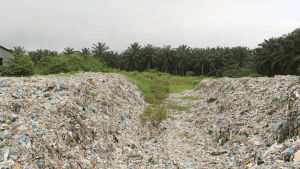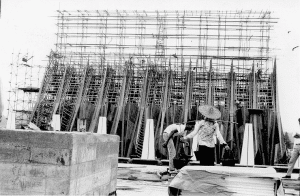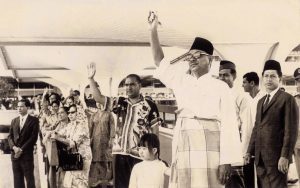Restoring The Identity Of The Stateless in Sabah
They are the undocumented, invisible, people without a legal identity and oftentimes forgotten. The stateless community in Sabah is far from hidden. They are part of the state’s population, in communities, markets and among us. Their battle for legal rights have been ongoing for decades because recognition of nationality serves as a key to a host of other rights, such as education, health care, employment, and equality before the law. Without a legal identity, they remain vulnerable and their futures are uncertain.
In recent years, changemakers (NGOs and netizens) and even government bodies have implemented stopgap interventions to ensure that stateless families receive basic healthcare services, their children have access to education and adults have some job opportunities. Yet, the work is far from done. The road to legal citizenship is an uphill battle, sometimes spanning generations. The stateless are human too. Their identity is worth fighting for and their future lends to the future of the state.
Access To Education
It has been found that stateless children in Sabah are the leading population to be out of school³. The lack of documentation cuts off access to public education³. While there are Alternative Learning Centers (ALCs) set up by NGOs to give stateless children access to education, it is not mandatory for them to be in school.
- Education is a fundamental human right of every human being. Article 26 of the Universal Declaration of Human Rights stipulates that all persons shall have the right to free and compulsory education, at least in the elementary stages1.
- While there is an estimated population in Peninsular Malaysia, there is no concrete data on stateless communities in East Malaysia due to the complexity of history and irregular migrant flow into the state. In Sabah, most of the stateless communities are of Filipino or Indonesian descent2.
- It has been found that stateless children in Sabah are the leading population to be out of school[3]. The lack of documentation cuts off access to public education3. While there are Alternative Learning Centers (ALCs) set up by NGOs to give stateless children access to education, it is not mandatory for them to be in school. For example the Bajau Laut community has access to ALCs but because it is not mandatory, many of the Bajau Laut children spend their time at sea helping their parents fish and collect shells3.
- Studies showed that the lack of education has left multiple generations of stateless illiterate4. Only interacting with their own community, local organizations noticed that even parents face difficulties in reading, writing and speaking, just as much as their children did. By denying these children access to education, their community will be trapped in an endless cycle of poverty as was their ancestors before them.
Access To Job Opportunities
Ultimately, the movements of the Bajau Laut became extremely limited, cutting off their food supply and main source of income. Unable to find other work, several Bajau Laut descendants have resorted to begging⁵. From infants to old ladies, there is an increasing population of stateless beggars in several towns in the east coast of Sabah, such as Lahad Datu, Tawau and even in Kota Kinabalu⁵.
- United Nations Convention Article 17, relating to the Status of Stateless Persons, a stateless person has the right to engage in wage-earning employment1. In Malaysia, however, the stateless are denied the right to legal employment. Because of this the Bajau Laut of Sabah, focused their efforts towards generating income through their diving ability5.
- The community focused on marine related work such as fishing, as their main source of food and main form of income5. Their daily catch would be sold off at the wet market or be used as barter in exchange for rice, cassava, sailcloth, netting-twine5. However, as the local government enforced more and more restrictions related to the sea, this way of life was greatly impacted5.
- Ultimately, the movements of the Bajau Laut became extremely limited, cutting off their food supply and main source of income. Unable to find other work, several Bajau Laut descendants have resorted to begging5. From infants to old ladies, there is an increasing population of stateless beggars in several towns in the east coast of Sabah, such as Lahad Datu, Tawau and even in Kota Kinabalu5.
- There are however, members of the Bajau Laut community, who have settled on land5. These few have managed to obtain academic qualification and are employed as government servants, private businesses or even setting their own business venture5.
Access To Healthcare
The Bajau Laut survive on a day-to-day basis; they cannot afford hospital visits thus prefer traditional medicine⁴. Bajau children are also prone to skin infections, hookworm or skin lesions as a result of poor sanitation and hygiene practices⁴. Other severe problems amongst Bajau adults are malaria, typhoid and tuberculosis⁴.
- Article 25 of The Universal Declaration of Human Rights (UDHR) states that everyone has a right to adequate health and wellbeing for himself and his family. This is inclusive of family, food, clothing, housing and medical care 1.
- The Bajau Laut survive on a day-to-day basis; they cannot afford hospital visits thus prefer traditional medicine4. Bajau children are also prone to skin infections, hookworm or skin lesions as a result of poor sanitation and hygiene practices4. Other severe problems amongst Bajau adults are malaria, typhoid and tuberculosis4.
- Even though UCHR has specified that mothers and children are entitled to special care and assistance1, the Bajau community stick to home births and traditional medicine commonly practised in their community4. Consequently, this means their children are not provided with birth certificates and will be faced with the same cycle of limitations as their parents.
Changemakers
Movers and shakers who are making a difference among the stateless in Sabah
Leave No One Behind
Get educated on issues affecting Sabah today
Closing The Digital Divide
In Malaysia, we are closing in towards universal digital access. There is, however, an existing digital divide between urban and rural households. 88.8% of urban households have...
Universal Healthcare For All
Whilst Malaysia’s healthcare system prides itself on its affordable treatments and accessibility throughout the nation, there are still small gaps that need a bit more attention to detail.
Equal Education Opportunities F...
With the progress in Malaysia’s education system, there remains gaps for improvement. Education equity is the goal where no child is left behind and the principles of fairness in...
Better Employment Opportunitie...
In 2019, Sabah recorded 2,025,700 new labourers. Young local graduates prefer to stay in Sabah for work. A study found that 96% of respondents are willing to remain in the state...
Infographics
Significant data points to clue you in on the
current situation
Universal Healthcare For All In Sabah
Equal Education Opportunity For All In Sabah
Better Employment Opportunities & Advancement In Sabah
Challenges In Restoring The Identity Of The Stateless In Sabah
Closing The Digital Divide In Sabah
Explore Our Sources
- United Nations. Universal Declaration of Human Right.
- Pillai, V. (2018). Stateless in Sabah: The boys and girls who can’t go to school. Free Malaysia Today.
- UNICEF. (2019). Children Out of School. The Sabah Context.
- Wiki Impact. (2021). Education, A Distant Dream For Stateless Children.
- W. Hassan, W. S., & Peters, D. (2020). The Vulnerability of Bajau Laut As The Stateless People in Sabah. Jurnal Kinabalu, 183.





